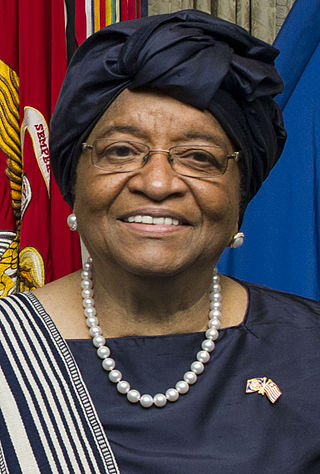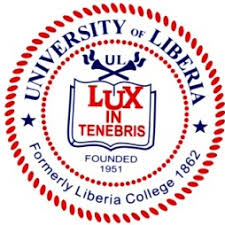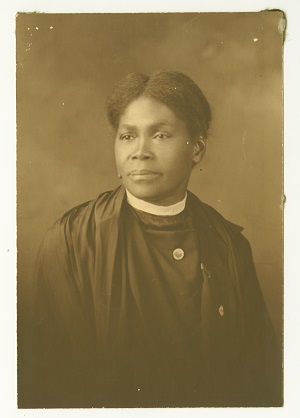
Monrovia is the capital city of the West African country of Liberia. Founded in 1822, it is located on Cape Mesurado on the Atlantic coast and as of the 2022 census had 1,761,032 residents, home to 33.5% of Liberia’s total population. Its Metro Area including Montserrado and Margibi counties largely being urbanized, was home to 2,225,911 inhabtants as of the 2022 census. As the nation's primate city, Monrovia is the country's economic, financial and cultural center; its economy is primarily centered on its harbor and its role as the seat of Liberian government.

The Unity Party (UP) is a political party in Liberia that was started in 1984 by Edward B. Kesselly, also its first standard bearer. Officially founded in Buchanan, Grand Bassa County, the party was established on 27 July 1985. The Unity Party participated in the first elections after the 1980 coup, running against President Samuel Doe in October 1985. The party has remained active in Liberian politics since and is the current ruling party following the 2023 Liberian general election.

Ellen Johnson Sirleaf is a Liberian politician who served as the 24th president of Liberia from 2006 to 2018. Sirleaf was the first elected female head of state in Africa.

Joseph Nyumah Boakai is a Liberian politician who is the 26th and current president of Liberia. He previously served as the 29th vice president of Liberia from 2006 to 2018, under President Ellen Johnson Sirleaf and as the minister of agriculture from 1983 to 1985. Boakai ran for president in 2017, losing the election to George Weah. He went on to defeat Weah in the 2023 election.
Alexander Priestly Camphor (1865–1919) was an American Missionary Bishop of the Methodist Episcopal Church, elected in 1916.

Francis Burns (1809–1863) was an American Methodist minister who served as a missionary in Liberia. He was the first Missionary Bishop, and the first African-American Bishop of the Methodist Episcopal Church.

The University of Liberia is a publicly funded institution of higher learning located in Monrovia, Liberia. Authorized by the national government in 1851, the university opened in 1862 as Liberia College. UL has four campuses: the Capitol Hill Campus in Monrovia, the Fendall campus in Louisiana, outside Monrovia, the Medical School Campus in Congo Town, and the Straz-Sinje Campus in Sinje Grand Cape Mount County. The university enrolls approximately 18,000 students and is one of the oldest institutions of higher learning in West Africa. It is accredited by the Liberian Commission on Higher Education.

Daniel Alexander Payne was an American bishop, educator, college administrator and author. A major shaper of the African Methodist Episcopal Church (AME), Payne stressed education and preparation of ministers and introduced more order in the church, becoming its sixth bishop and serving for more than four decades (1852–1893) as well as becoming one of the founders of Wilberforce University in Ohio in 1856. In 1863, the AME Church bought the college and chose Payne to lead it; he became the first African-American president of a college in the United States and served in that position until 1877.
Black Methodism in the United States is the Methodist tradition within the Black Church, largely consisting of congregations in the African Methodist Episcopal (AME), African Methodist Episcopal Zion, Christian Methodist Episcopal denominations, as well as those African American congregations in other Methodist denominations, such as the Free Methodist Church.

The African Methodist Episcopal University (AMEU) is a private institution of higher learning located in Monrovia, in the West African nation of Liberia. Located on Camp Johnson Road, the school is the second largest college in Liberia with over 5,000 students. The school was established in 1995 by the African Methodist Episcopal Church, and chartered by the Liberian Legislature in 1996.

Clinton Caldwell Boone was an African-American Baptist minister, physician, dentist, and medical missionary who served in the Congo Free State and Liberia. The son of Rev. Lemuel Washington Boone and Charlotte (Chavis) Boone of Hertford County, North Carolina, he played an important role in Africa as a missionary for the Lott Carey Foreign Mission Convention and the American Baptist Missionary Union, now American Baptist International Ministries.

Anna E. Hall was an African American Methodist deaconess and missionary based in Bainbridge, Georgia. She traveled across the South to complete her missionary training for 10 years after her time at Clark Atlanta University. Her most recognized missionary work was her travels to Monrovia, Liberia located in West Africa where she taught the Kru people. She also had a long history of missionary work at the Julia A. Stewart Memorial Girls Home and School, Garraway Mission where she became an influential figure over a period of twenty four years.

Gbehzohngar Milton Findley is a Liberian politician and businessman. He is a former President Pro Tempore of the Liberian Senate and also the Minister of Foreign Affairs in the administration of President Weah until 28 July 2020.
Laurence Bropleh is a Liberian Politician, Diplomat, United Methodist clergyman, lawyer, former Cabinet-Level government official, and business executive. Bropleh was Minister of information, Cultural Affairs and Tourism of the Republic of Liberia in the administration of President Ellen Johnson Sirleaf. He is the owner of a farm in Grand Bassa County and Law Practice on United Nations Drive in Monrovia. Bropleh received primary education in Liberia and advanced degrees including a Ph.D. in the United States.

Major General Prince Charles Johnson III is a retired Liberian military officer who served as the Chief of Staff of the Armed Forces from 5 February 2018 to 5 February 2024.
Ann Wilkins was an American missionary teacher in Liberia. There, she founded the Millsburg Female Academy, which was the first U.S. Methodist girls' school established in a foreign country. Her work was sustained by the members of the New York Female Missionary Society.
Charles A. Minor is a former Liberian ambassador to the United States.
Sophronia Farrington Cone (1801-1880) was a teacher, artist, and one of the first single female missionaries from America to Africa when she helped found a mission in Liberia in 1834.
Events in the year 2016 in Liberia.
Events in the year 2013 in Liberia.













